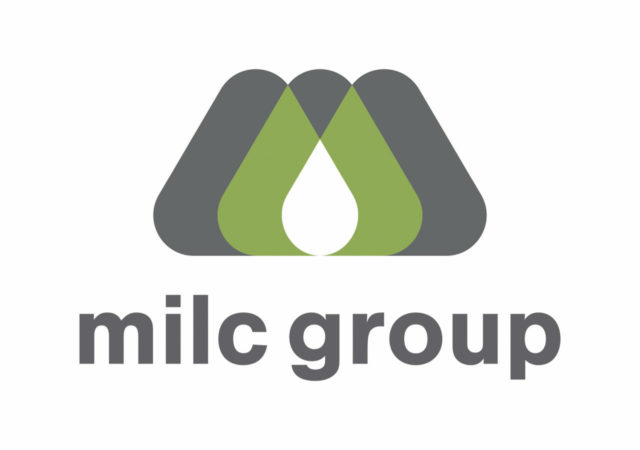The Westland/Hallmark Meat Co. incident has brought the dairy industry into the consumer spotlight.
It demonstrates how quickly a scandal, or in this case, a video, can travel nationally and internationally regarding how we produce our food and how we take care of our animals. Although most dairy producers take good care of their animals, the general public and consumers are so far removed from the farm that they do not understand what good care entails. Their confidence in the producer is waning, and they want assurances that their food is safe, healthy, produced in an environmentally sound manner and that the animals are being taken care of.
In a nationwide survey conducted in 2007 by the American Farm Bureau and Oklahoma State University, 95 percent of consumers agreed or strongly agreed with the following statement: “It is important to me that animals on farms are well cared for.” In another recent nationwide study conducted by the Center for Food Integrity, only 18 percent of consumers strongly agreed that U.S. meat was derived from humanely treated farm animals.
How do producers increase the confidence level of consumers in our production methods and especially in our animal care practices? One solution is to have a third-party audit of your animal care program. Matt Jones, director of audits and assessments for our company explained the three types of audits. A first-party audit is a “self” audit – one the producer conducts to make sure things are working well on the farm. A second-party audit is one conducted by a person close to the operation such as a nutritionist or veterinarian. A third-party audit is one conducted by an auditing company with no vested interest in the farming operation. “The auditor is trained in animal care and production practices, and understands the auditing process,” stated Jones. “If producers want to increase consumer trust they need to look outside their immediate circle of advisers – they need to look at third-party audits.”
According to Dr. Janice Swanson, professor and director of Animal Welfare at Michigan State University, “Although we fully expect producers are managing and caring for animals in accordance with best practices, a third-party audit enables a producer to verify his or her use of best practices through a mechanism that is recognized as free of conflict of interest.” An objective, third-party audit can provide credibility and proof that the producer truly is caring for their animals.
“It’s the only way to get an unbiased opinion,” stated Dennis Armstrong, professor emeritus at University of Arizona. “And it is the best way to get an unbiased view of your animal well-being practices.”
Such oversight can assist a producer in identifying areas where they are doing a good job and areas where they can improve. It’s an independent review of animal care practices and it is impartial.
“Third-party reviews or oversights are always a good way to make sure we don’t fall into the syndrome of ‘too close to the forest to see the trees,” stated Mike McCloskey at Fair Oaks Dairy in Indiana. “It is a way to learn new and better ways of doing things since the third-party verification has a broader look at an individual’s ingenuity and technology across the industry.”
According to Juan Velez, vice president of farm operations for Aurora Organic Dairy, they have utilized third-party audits on their operation so they can make sure they are keeping up with the highest standards in the industry. It is also for their customers. They want to be able to prove through a reputable third-party that animal welfare is a priority in their production systems.
Today’s consumers are unfamiliar with food production practices and methods. They rely on product brands in the retail and foodservice industry to ensure products are safe and wholesome and being produced in a socially responsible manner. Retail and foodservice industries are increasingly calling for their suppliers to have verification of their animal care practices. They want to provide their customers with assurance that the food they are supplying is from well-cared-for animals.
Some producers may think that having third-party oversight is intrusive to their operation. Velez stated that he felt this should not be an issue whatsoever.
“When the topic is animal welfare, this must be a totally transparent process,” he said. “Having a third-party on the property conducting animal welfare audits does not mean intrusion, it means transparency,”
Dr. David Reeves, associate professor at the University of Georgia, said there are two different ways to approach oversight programs. Producers who view oversight as an intrusion will likely have their expectations met. Those who view it as an opportunity to improve their operations will likely have their expectations met.
Whether oversight is an intrusion totally depends on one’s mind-set. Regardless, from a business privacy standpoint, producers who participate in an oversight program should receive assurance that their information will be held as proprietary information and not released.
In order for animal care audits to have long-term benefits for producers, they should allow for continual improvement. Using valid measurements, annual audits document continuous improvement. Any program that takes a “one-time” look at an operation is not going to give the producer the tools they need to make improvements and measure success.
“People manage what they measure,” said Temple Grandin, Colorado State University. “A good animal welfare plan will measure information such as lameness, cleanliness, lesions, etc., and you can tell if you are getting better or worse.”
Producers who have embraced this issue want to do the best they can in their animal welfare practices. Third-party oversight is one way to prove they are doing what they say they are doing. It is a step in the right direction in building consumer trust and confidence in on-farm production and animal care practices.
Marj Ocheltree
Director of Marketing
and Special Projects
for Validus
ocheltrm@validusservices.com


.jpg?t=1687979285&width=640)


